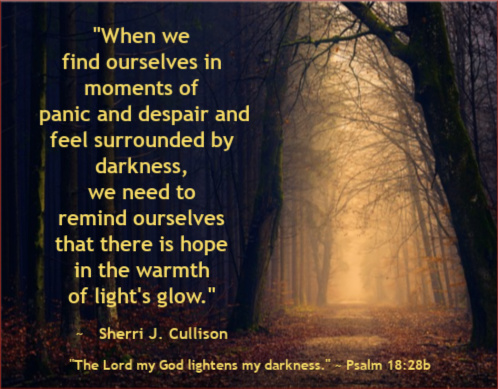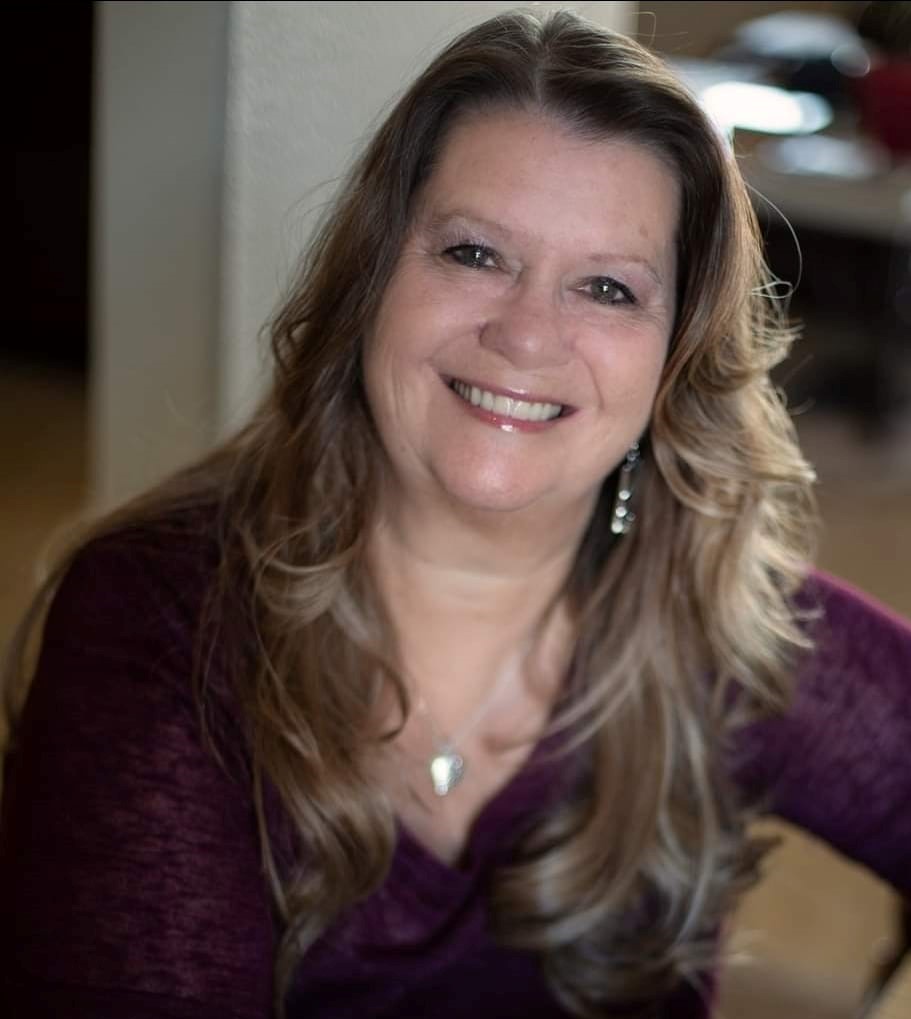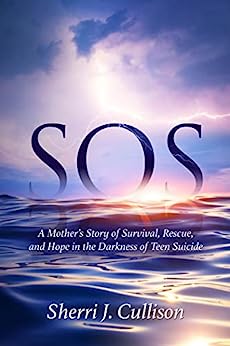Embrace Light in the Darkness
I first met Sherri Cullison at a writer's conference, and I was instantly drawn to her eagerness to discover all that God had for her life. When I discovered her tragic story, my heart ached. But later I saw how God used even this to shape her and her ministry to others.
In this Hope UPGRADE, she reflects on how God helps us embrace His light, even in our darkest hour.
Sherri says, "The moment I stepped into our living room and found my fourteen-year-old daughter Sarah’s lifeless body on the floor, my world became dark.
When I (Dawn) let that sink in—how I would feel if that were my child and the "darkness" that would suddenly surround me—it takes my breath away. How can a person survive such deep sorrow? Sherri explains it's not a "how"—it's a "Who."
Sherri continues . . .
The room where I watched my three children laugh and play and open Christmas gifts suddenly became a death room.
A heaviness hovered in the air. In my mind, my home was no longer a brightly-lit home of wonderful family times, but a dingy, evil place.
My youngest daughter had made an uncontrollable decision and took her own life.
Instantly I concluded that someone must have done this to her. I was in shock.
I threw my purse across the floor and called for help. Surely this was a mistake, a nightmare I was lost in.
I called 911 and gave dispatch the information.
“Just stay on the line with me, Mrs. Cullison. Help is on the way,” the dispatcher said.
My tragic circumstance might not be the same as yours today. Maybe you’ve lost the love of your life. Maybe you’re facing serious health issues. Maybe you lost a baby in the womb. Maybe you lost everything you owned and you’re starting over.
Whatever you’re facing today, I want to encourage you that darkness doesn’t have to live in your life forever.
Each day you face doesn’t have to be hopeless for the next.
Even though darkness appeared to envelope me that night I lost my daughter, I was not alone. God brought light into my moment of despair.
On the phone with the dispatcher, I blurted out, “Are you a Christian?”
“Yes,” she quietly responded.
“Can you please pray with me?” I pleaded.
“There is a pastor’s wife here in the room with me and I’ll put her on and she’ll pray with you.”
I can’t remember the words she prayed, but I know it comforted me. Calling on the Lord in a time of devastation wasn’t attributable to me.
I don’t even remember thinking I should pray. The words simply flowed across my lips in desperation and fear.
I remember when I was a little girl lying in my bed at night, I felt very alone in the dark. I was afraid. I was convinced there was danger because I couldn’t see anything around me, even though I had two sisters in the room with me.
I pulled the blankets up around my face and cuddled up to where I felt I was safe.
I was hiding from nothing, but I didn’t know I could ask for help.
Soon my body relaxed, and I fell asleep until the morning light.
Isn’t that what we find ourselves doing sometimes?
When we face a hopeless situation, we feel afraid and panic. We know there must be help somewhere, but how and where do we turn for help?
You may feel you’ll never recover or that nothing in your situation will ever change, but let me encourage you with these three ways we can find light in our darkness.
1. Call on God that Very Moment
Matthew 11:28 (NIV):
"Come to me. all you who are weary and burdened and I will give you rest."
Don’t wait. Whether a simple “help me” prayer or an offering of a river of tears, or even an outcry in anger.
If you feel you don’t have the strength, ask someone to pray with you. Not only will it bring instant light from His presence, but He will give you rest.
2. Follow Jesus and Not the Darkness
John 8:12 (ESV):
". . . I [Jesus] am the light of the world. Whoever follows me will not walk in darkness, but will have the light of life."
Too often we depend on possessions and even others to be our light, but Jesus encourages us to follow Him because there we’ll find the light of our everyday life.
3. Allow the Lord to Light the Lamp of Your Soul.
Psalm 18:28 (ESV):
"For it is you who light my lamp; the Lord my God lightens my darkness."
If your lamplight is no longer lit, please don’t turn away or resist His help. Often it can mean the difference between life and death.
When we find ourselves in moments of panic and despair and feel surrounded by darkness, we need to remind ourselves that there is hope in the warmth of light’s glow.
God holds tomorrow and He also holds you. His embrace today can help you get through your unknown tomorrows.
When you face darkness in life’s hardships, what are your intentions today to address them tomorrow?
NOTE: September is National Suicide Prevention Awareness Month. If someone you know is in crisis, contact the National Suicide and Crisis Lifeline by calling 988.
 Sherri J. Cullison, author and speaker, knows the pain and devastation life brings. Whether your hope is treading or sinking, Sherri’s heart for hope reveals how we can manage our everyday struggles to
Sherri J. Cullison, author and speaker, knows the pain and devastation life brings. Whether your hope is treading or sinking, Sherri’s heart for hope reveals how we can manage our everyday struggles to claim joy and love life. In her recent book, SOS: A Mother’s Story of Survival, Rescue, and Hope in the Darkness of Teen Suicide, Sherri shares the heartbreaking loss of her daughter and the evidence of God’s healing, forgiveness, and restoration. Sherri and her husband live in Arizona and have two children, seven grandchildren, four pianos, and one RZR. Contact Sherri at www.sherrijcullison.com.
claim joy and love life. In her recent book, SOS: A Mother’s Story of Survival, Rescue, and Hope in the Darkness of Teen Suicide, Sherri shares the heartbreaking loss of her daughter and the evidence of God’s healing, forgiveness, and restoration. Sherri and her husband live in Arizona and have two children, seven grandchildren, four pianos, and one RZR. Contact Sherri at www.sherrijcullison.com.
Graphic adapted, courtesy of Joe at Pixabay.
 Post a Comment → Posted on
Post a Comment → Posted on  Tuesday, September 12, 2023 at 10:02AM
Tuesday, September 12, 2023 at 10:02AM  Hope,
Hope,  Light in Jesus,
Light in Jesus,  Light in Our Darkness,
Light in Our Darkness,  Light in the darkness,
Light in the darkness,  Sherri Cullison,
Sherri Cullison,  Sherri J. Cullison,
Sherri J. Cullison,  Suicide,
Suicide,  Suicide Prevention Month,
Suicide Prevention Month,  Tragedy,
Tragedy,  Upgrade with Dawn Upgrade Your Life
Upgrade with Dawn Upgrade Your Life  Grief,
Grief,  Hope
Hope 




